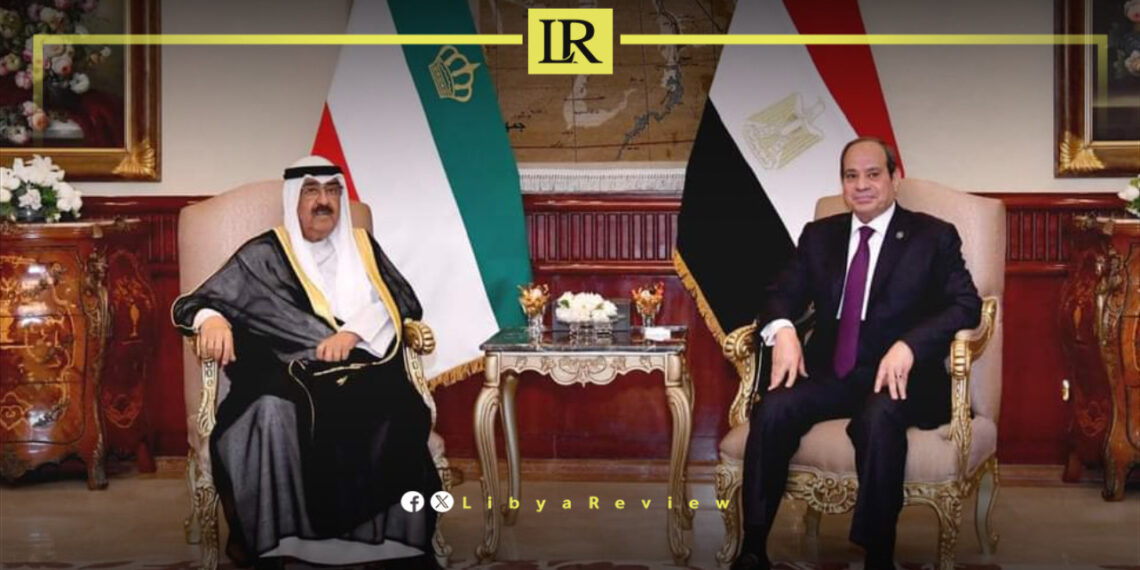Egyptian President Abdel Fattah El-Sisi and Kuwaiti Amir Sheikh Meshal Al-Ahmad Al-Sabah have jointly emphasised the necessity of respecting Libya’s sovereignty, unity, and territorial integrity.
Following the Amir’s visit to Egypt, a joint statement highlighted the rejection of all forms of external interference in Libya’s affairs and the importance of supporting Libya’s national efforts within the framework of purely Libyan ownership of the political settlement.
The statement praised the efforts of the Libyan legislative authority in this regard, particularly its enactment of electoral laws to facilitate the prompt simultaneous holding of presidential and parliamentary elections.
These efforts align with the 2015 Skhirat Agreement, the Libyan Constitutional Declaration and its amendments, and other references for resolving the Libyan crisis, including relevant United Nations Security Council resolutions.
Additionally, the statement underscored the urgency of withdrawing all foreign forces, mercenaries, and fighters from Libya within a specified timeframe, and the necessity of dismantling militias to reunify military and security institutions under a unified executive authority capable of governing all Libyan territories and representing all Libyan people. This call reinforces the commitment of both Egypt and Kuwait to support stability and peace in Libya as part of broader regional security interests.
Libya has been in chaos since a NATO-backed uprising toppled longtime leader Muammar Gaddafi in 2011. The county has for years been split between rival administrations.
Libya’s economy, heavily reliant on oil, has suffered due to the ongoing conflict. The instability has led to fluctuations in oil production and prices, impacting the global oil market and Libya’s economy.
The conflict has led to a significant humanitarian crisis in Libya, with thousands of people killed, and many more displaced. Migrants and refugees using Libya as a transit point to Europe have also faced dire conditions.
The planned elections for December 2021 were delayed due to disagreements over election laws and the eligibility of certain candidates. This delay has raised concerns about the feasibility of a peaceful political transition.
Despite the ceasefire, security remains a significant concern with sporadic fighting and the presence of mercenaries and foreign fighters. The unification of the military and the removal of foreign forces are crucial challenges.


